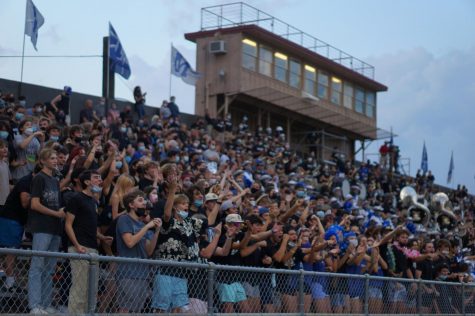Mac alums adapt to year disrupted by COVID-19
While they agree with what their universities have done, college students still struggle to adjust to upheaval caused by coronavirus
Sunday should have been a day where UT students returned to campus following spring break, but with spring break extended and classes converted to online-only starting March 30, the area around the UT tower was almost entirely deserted on Sunday. Photo by Elisha Scott.
March 23, 2020
Remembering back to March 6 when South by Southwest, which would be wrapping up on Sunday, was canceled, it’s hard to believe how much has changed in just a few weeks. Now, every restaurant, supermarket, business, school, some houses and even entire states, are closed or on lockdown, taking every precaution possible to prevent the spread of the highly contagious coronavirus, also known as COVID-19. For a certain group of people, however, it’s a little more complicated than stocking up on groceries and hiding out inside their houses. College students all across America, including many McCallum alumni, are scrambling to find stable ground as their classes are cancelled, their dorms are closed and their campuses left barren.
How college students found out
“We didn’t get the email saying we were moving to online classes until I had already attended my classes for the day,” University of Arkansas sophomore Maddie Doran said. “So I actually attended my last class of sophomore year without even knowing it. On Wednesday, the 18th, the university decided to close housing for the semester. So for me, living in my sorority house, this meant that I was basically being kicked out.”
My professors seemed really on edge and in class some of them would talk more about their worries about the virus than about our course material.
— Charlie Holden, University of Oregon sophomore
Even before the panic spread and the epidemic turned pandemic began closing university all across the country, students noticed a difference in the atmosphere and moods started to change.
The University of Texas announced on March 17 that it was moving all of its classes online for the remainder of the semester, starting March 30.
“That week before…campus life definitely felt different,” UT freshman Miranda Hynes said. “It emptied out a lot, and a lot of people were very high anxiety. You could just tell the vibe was weird.”
Some saw even more obvious signs that things were changing around campus as precautions began to be put in place and worry grew.
“Before everything closed down, the university put out these portable sinks like you see at music festivals all over campus, so that was really strange to see,” University of Oregon freshman Charlie Holden said. “My professors seemed really on edge and in class some of them would talk more about their worries about the virus than about our course material.”
But soon students began receiving phone calls and emails announcing that schools would either be closing and having online classes for the remainder of the semester, or extending their spring break, most likely in preparation to transition to online-only classes.
There was a mixed reaction to these announcements, but the most common one was shock, curiosity and confusion.
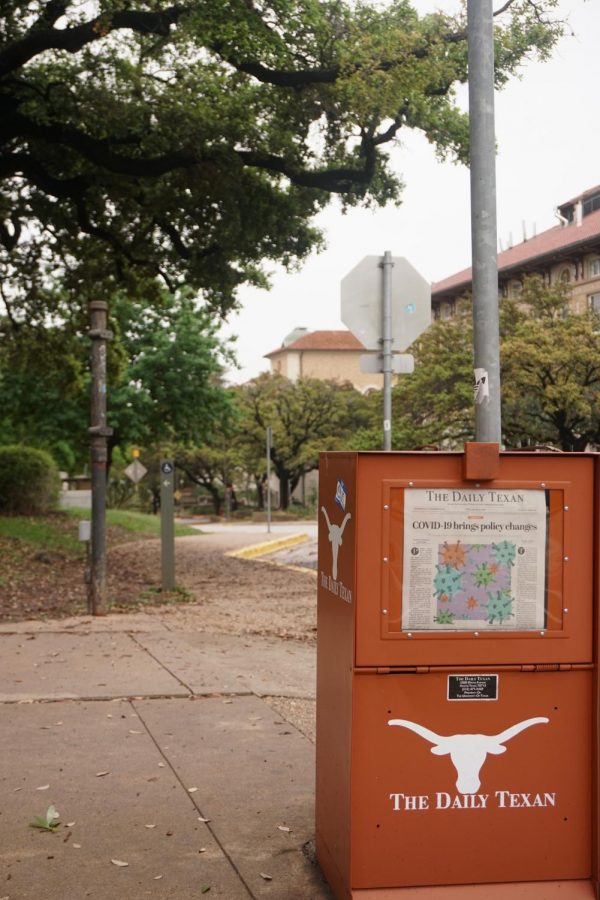
The Daily Texan headline, “COVID-19 brings policy changes.” acts like a caption for a UT campus left virtually empty the University’s decision to extend spring break and resume classes online only starting on March 30. Photo by Elisha Scott.
“I actually found out while eating lunch in the dining hall on Pomona’s campus,” Pomona University senior Christina Beck said. “There had been rumors all morning that they would send us home because so many other institutions were doing so. The email probably came around 12:30 p.m., and the mood in the room completely changed. All 200 people in the dining hall were glued to their phones. I was expecting them to make the announcement and send us home, but when the email actually came, it was still really shocking.”
Many students, like those at Pomona, expected these changes due to the amount of other schools closing their campuses and/or extending breaks, but the announcements still didn’t fail to stop many in their tracks.
“Last Wednesday, other Texas schools began extending their spring break and by Wednesday night, I got the email from UT that our spring break was extended by a week,” said University of Texas senior Maya Coplin. “I was at Flightpath working on my senior design project with a friend, but once I got the email from UT, I wasn’t able to focus and went home. … We recently got the official email explaining that classes will be online after the extended spring break.”
I can’t imagine being a senior in high school or college right now. That’s a lot of lasts being ripped away really fast.
— Maddie Doran, University of Arkansas sophomore
These announcements were also made amidst the announcements of other unrelated events, like sporting events, being cancelled or postponed. This added much pressure to the situation as everything around students began to shut down.
“I actually found out at work that we were having our spring breaks extended,” said University of Texas senior Benjamin Brown. “That was the night that the NBA postponed the season and everything started to unravel so it was pretty surreal to be at work and have all of that going on around you. … At that point everyone pretty much knew we were going online the rest of the semester. ”
Like Brown, Hannah Ilan is a Class of 2016 alumnus, who is a senior at UT.
“I was watching a movie and scrolling on my phone periodically, and eventually got a text from one of my friends telling me to read the message that UT had sent out regarding the situation,” Ilan said. “I wasn’t sad or upset at all, I was just truly shocked because the reality of the situation finally set in. I guess I just didn’t really think UT would close its campus because it’s such an inconvenience (or worse) for so many students and staff and faculty members, so once it actually happened, I realized that I needed to start taking the situation a bit more seriously.”
Soon after UT canceled classes, Austin Community College followed suit, a decision that affected current McCallum students taking joint enrollment classes at ACC and also Mac alumns like Natalie Murphy who attend ACC full time.
“I was with friends who go to UT when they announced an extra week of spring break, and again when they announced they’d be doing the rest of the semester online, and ACC’s decisions were about 24 hours behind, but I just assumed they would be the same because that’s typically what ACC does,” Murphy said. “I think everyone is just doing the best they can and there aren’t any clear answers. I’m happy that ACC is doing what the rest of the colleges and universities in Texas are doing, to keep everything streamlined. I don’t think anyone really knows what is going to happen in the coming months, so it’s better safe than sorry I suppose.”
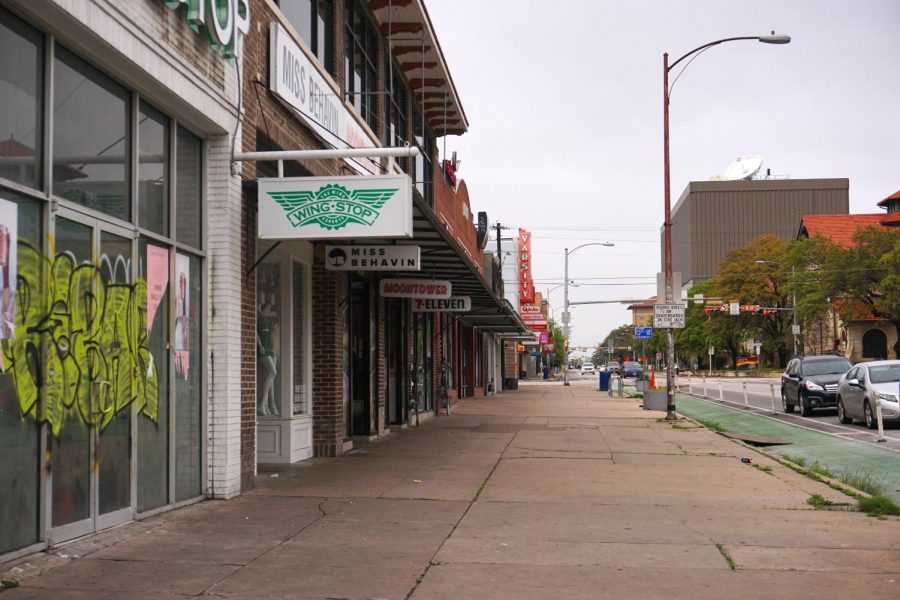
In pre-COVID-19 times, the Drag just west of campus would have been teeming with UT students returning from spring break, but on the Sunday that would have brought the regularly scheduled spring break to a close, the street was shut down and devoid of traffic. Photo by Elisha Scott.
The impacts of COVID-19 cancellations
Along with the uncertainty about the rest of the semester and beyond, students found themselves upset by the cancellation of the rest of the year for many reasons.
“I think it was pretty shocking when they first cancelled in-person class for the rest of the semester,” Doran said. “At that point, most schools were just doing online for the two weeks following spring break which is what most people thought we were going to do as well. So when they cancelled for the semester, it felt like I was being [cheated out] of the rest of the year. However, I think it was smart in the long run.”
No one knows what is to come as far as finding a job or even getting credit for our last classes. We are in a phase of waiting and that’s all we can do.
— Maya Coplin, University of Texas senior
Doran explained that while she herself is not a senior, she still feels like her sophomore year and months of her college experience have been taken from her. But the most upsetting factor was that her time with her senior friends would be cut short.
“My best friend at school is a senior and I’ve known her since before my freshman year started,” she said. “I was already struggling with the idea of her leaving in May so when it was sprung on me in March, it was pretty upsetting. Some of my really close friends are seniors, and I was looking forward to finishing out the year with them.”
She also addressed the terrible situation that other students, especially seniors who won’t be returning, are facing.
“There are people who have it way worse than me though,” she said. “I can’t imagine being a senior in high school or college right now. That’s a lot of lasts being ripped away really fast.”
Many seniors are attempting to find a way to deal with concluding their year early and grasp the idea of not returning to college. For alumni who traveled cross country (or world), or those who stayed in state and have friends who did, this means possibly not seeing them in person again for a while, if ever. And many found it hard to say goodbye on such short notice.
“We found out Wednesday we had to leave campus, and most of my friends left Saturday or Sunday, so we really had only a few days to say goodbye and try to find closure with everything going on,” Beck said. “And because Pomona has a large international student population, as well as students from across the country, there are people I probably won’t see again for a long time.”
This sudden change also creates many issues for seniors who had expected a few more months to figure out what’s next. With their year being cut short, students are being sent home and thrown out into the world with little access to help from the professionals.
“While it is upsetting, at the least, to have such an unexpected end to senior year, I am more concerned about the lack of resources for seniors when figuring out life after college,” Coplin said. “When I first heard the rumors about school closing, I felt anxious about it. What would it mean in terms of my senior project, graduation and the job search. I understand all of this is unexpected, but hopefully by the end of spring break professors will have a plan to support us in our job hunt without in-person contact.”
Uncertainty is also resulting in seniors feeling pressure to have a plan, but the lack of resources or information make this difficult.
“Everyone who is a senior is in the same boat,” she said. “No one knows what is to come as far as finding a job or even getting credit for our last classes. We are in a phase of waiting and that’s all we can do.”
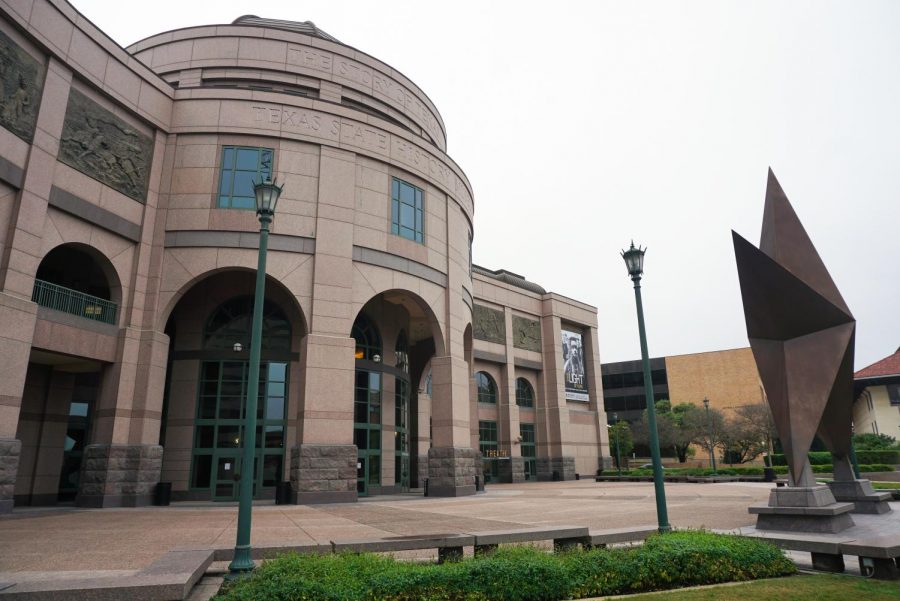
The Bullock Museum and IMAX-Theatre closed indefinitely “out of concern for our visitors and staff due to the spread of COVID-19” on Tuesday. As a result, there was no one outside the building on Sunday as was the case all across the UT campus. Museum officials said there is no timetable for when the museum will reopen; rather they will resume programming “as circumstances allow.” Photo by Dave Winter.
Even those who have a plan for after college are suffering due to the uncertainty of the future and the state that the world will be in.
“I’m planning on heading to graduate school in the fall, which could also be up-in-the-air depending on how the next few months pan out,” Beck said.
As Coplin mentioned, there is also a lot still up in the air, especially graduation. One of the biggest concerns of both the high school and college class of 2020, is missing out on long awaited and anticipated events, one of which being graduation.
“Graduating from college is a really big accomplishment for a lot of people, and we probably won’t get to celebrate that accomplishment in the way we all expected,” Beck said. “And that’s disappointing.”
Along with the disappointment of not having a proper graduation, seniors will be missing out on many other accomplishments and celebrations of surviving 16-plus years of schooling.
“We went to school on the 19th not even realizing it was the last day of school,” Coplin said. “My friends and I … can no longer have the grad parties or road trips we were planning, or our senior exhibition we had been working all year towards. We won’t get a sense of closure that comes with typical end of year plans.”
Adjusting to attending college online
March 19 wasn’t really the “last day of school,” however, because despite not being able to physically go to class, students will continue to have classes. Instead, they will mirror the times of technological advancement and be completely electronic.
Graduating from college is a really big accomplishment for a lot of people, and we probably won’t get to celebrate that accomplishment in the way we all expected, and that’s disappointing.
— Pomona College senior Christina Beck
Doran, like many, has returned home and is participating in what many colleges, as well as high, middle and elementary schools, are implementing: remote learning. Better known as online classes, remote learning takes many shapes and forms.
“Every teacher is going about it differently,” Doran said. “Some [classes] I watch taped PowerPoint presentations and others I actually attend online class live with my teacher and other students.”
She says while there are some glitches in the system, her school and professors are swift to fix them and provide support.
“Sometimes the system doesn’t work, but it seems like we are ironing out the kinks,” she said. “My teachers are all being very flexible and have even postponed tests or taken away projects.”
As many of the college students expected, this system is very different from learning presently in a classroom. This has sparked problems for many students, including Pace University freshman Zoe Hocker, who began online classes a few days before her spring break on March 11.
“Personally, I am not a huge fan of online classes because I get distracted and am overall less motivated to work hard,” she said. “So for me, it will be a bit challenging to adjust, but it’s really the only choice we have.”
Doran shares those feelings as far as being able to focus when doing online classes; however, she says she has found tricks that help her throughout the day.
“I find it hard to learn online just because I’m not physically in class,” she said. “I’m still learning the best way to go about it, too, but I think it helps to make a list of things to get done every day. It sometimes feels like busy work, though, which I don’t like.”
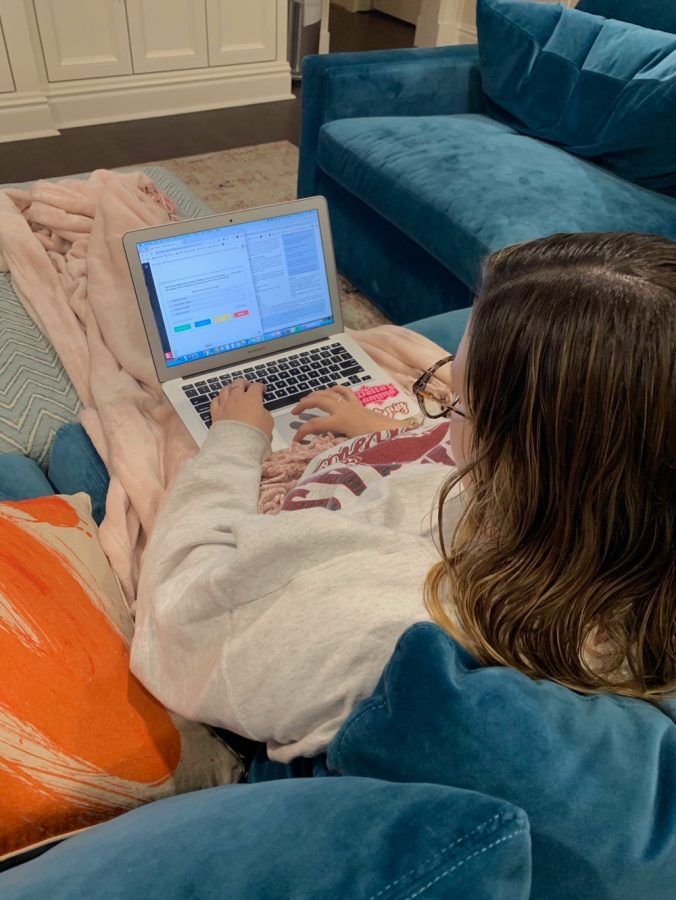
University of Arkansas sophomore Maddie Doran virtually attends her family relations class on March 15 in the comfort of the Delta Gamma sorority house after classes were moved online on March 12 but before officials shut down university housing on March 18. Doran said she has had to make daily lists to stay focused now that her classes are exclusively online. Photo by Olivia Stieren.
Unlike Arkansas and Pace, many schools are taking a similar approach to Mac and allowing a week or two more of break for the students, granting professors and administration time to work on how this remote learning will be executed. And while it does allow more downtime for students, it also creates anxiety about how all of this will work and the outcome of the semester.
It’s not worth risking other people’s lives by hanging out to get your spring break. Just remember the sooner we can all unify as one to end this pandemic, the sooner it’ll be done.
— Pace University freshman Zoe Hocker
“I’m trying to stay optimistic about the online classes, but I’m a bit worried to be honest,” Hynes said. “I have a lot of older teachers who struggle to use technology in the classroom, so I’m afraid we’ll run into issues with having that set up. Also, I have a fairly significant amount of classes that require participation, and I feel like that’ll be a lot more difficult on an online platform.”
Like Hynes mentioned, students all across the country have brought up concerns as to how some classes, especially those that involve physical activities, such as labs or performances, will be conducted.
“I’m a product design major so most of my courses are project-based and require me to use facilities or work closely with other students, and I think that’ll be difficult to do in an online class,” Holden said.
Another common complaint brought up by students and their parents is the cost which they are paying to attend a college which they will no longer be physically attending.
“I’ve actually seen a petition going around to reduce the cost of tuition for spring term because it’ll be online,” Holden said. “ I don’t think anything will come of it, but I think it sums up student’s attitudes well.”
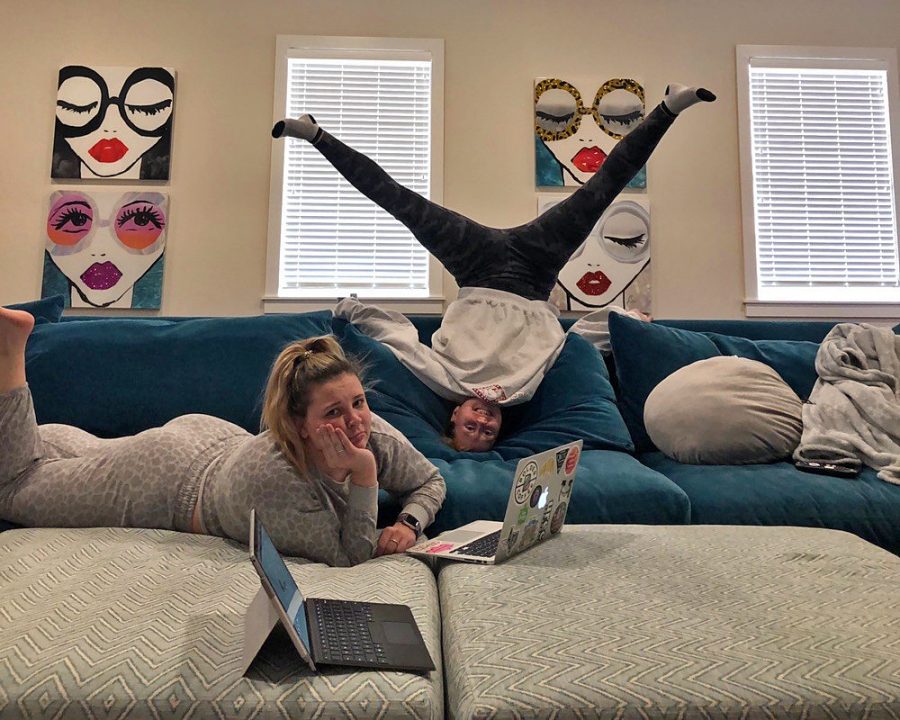
All the COVID-19 disruptions have turned college life upside down for University of Arkansas sophomores Maddie Doran of Austin and Olivia Stieren of St. Louis. Photo courtesy of Maddie Doran.
COVID-19 hits home
The frustration isn’t unique to college students in Oregon. At bit further south in California, Beck had plans which involved access to her campus that will possibly be thwarted by the virus.
“I had planned to remain on Pomona’s campus over the summer to continue my thesis research in a biology lab, and it’s unclear if I’ll be able to return to campus to do so,” she said.
My mom is really high risk because of some chronic respiratory issues, so I’ve tried to be really careful to not give it to her. Knowing that I may have been more exposed to it than I thought was pretty nerve-wracking.
— University of Texas freshman Miranda Hynes
Brown, who is set to graduate in the fall, is concerned this quarantine will affect his ability to get the credit he needs to do so.
“I actually lost my job because of the quarantine. I’m a marketing intern for UT’s athletic department and once they cancelled all spring sports, there was no use for my work,” he said. “I have to have another internship to graduate as well and most of the ones I had lined up for the summer are not hiring anymore. So there could possibly be delays or some complications with me graduating on time because of the quarantine.”
Others have issues outside of classes and schoolwork, including those that don’t have the comfort of returning home and are therefore forced to stay on campus.
“One of my roommates actually is staying in our room currently,” Hocker said. “We are very fortunate that our school has left the dorms open for students to live in in case their situation back home is worse or they are unable to travel home. I can imagine it’s pretty hard being stuck alone in the dorms all day though.”
For those who are able to return home though, a common concern is spreading coronavirus to family. For UT students, this concern is heightened by the March 18 announcement of the first student on campus testing positive, as well as School of Undergraduate Studies Dean Brent Iverson. This followed the press release on March 13 announcing that the third confirmed case of COVID-19 in Travis County was none other than UT president Gregory L. Fenves’ wife Carmel.
“They’ve been fairly consistent as far as emailing us with updates every day, and the email that they sent [on the 18] pretty much just confirmed that there are two new cases in the UT community,” Hynes said. “I wasn’t panicking, but it definitely freaked me out.”
In the press release regarding the confirmed cases involving UT and its campus, Fenves said: “Earlier today, we learned that two additional members of our UT community have tested positive for COVID-19, including the first UT student. … Please know that our staff members are working tirelessly to provide support to all who need it. … It is here in Austin and within our university community, and we must act — through social distancing and other preventive measures — and do our part to limit its effects.”
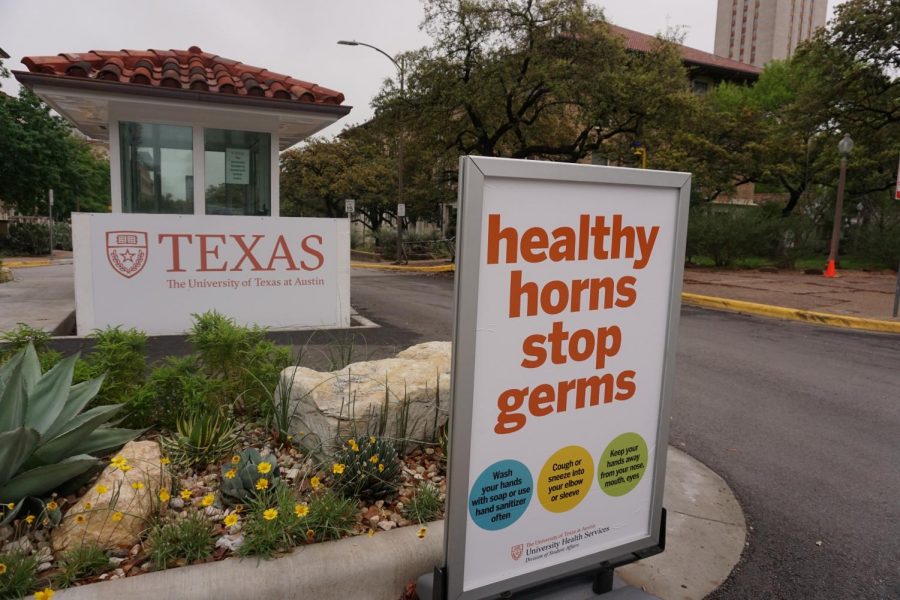
A sign of the times at a security checkpoint on the UT campus is a reminder of what college students and everyone else should be doing to help slow the spread of the coronavirus. Photo by Elisha Scott.
Ilan said that the reality of Fenves’ warning hit home for her precisely when she returned home from school.
“When I first learned about COVID-19, it was definitely concerning, but it wasn’t very scary to me yet because there was still so much distance between me and my loved ones and where the pandemic originated,” Ilan said. “Now that it’s having a significant impact on the lives of me and my loved ones, I’m definitely getting more and more concerned every day. I’m lucky that I’m from Austin, so my family is close by, but I have older relatives across the country and across the world that I really fear could be severely harmed or worse if they were to get Corona, so I’m truly hoping that people are actually starting to take this outbreak seriously if they weren’t before.”
I’m quarantined with my family an hour outside of New York City, which is an interesting place to be because New York now has the most cases and is sort of the epicenter of the crisis in the U.S.
— Austin Community College student Natalie Murphy
For Hynes, however, the reality of at-risk relatives isn’t across the country, so her concern of spreading it to family is immediate, which makes the confirmed cases in Austin and Travis County that much more troubling.
“My mom is really high risk because of some chronic respiratory issues, so I’ve tried to be really careful to not give it to her,” Hynes said. “Knowing that I may have been more exposed to it than I thought was pretty nerve-wracking.”
So, despite the inconveniences and uncertainties the coronavirus has created, students realize the danger of it and are encouraging those around them to do their part in preventing its spread.
“Please please please stay safe!” Hocker stressed. “It’s not worth risking other people’s lives by hanging out to get your spring break. Just remember the sooner we can all unify as one to end this pandemic, the sooner it’ll be done.”
Kennedy Schuelke, a Loyola Marymount University sophomore, agrees with Hocker that everyone must come together, by staying apart, to end the spread of this virus. Despite the uncertainty surrounding COVID-19 and what will stop it, many agree that the best tactic is to distance yourself from others, therefore, it’s urged that everyone play their part by doing so.
“There is no perfect way to go about this,” Schuelke said. “So I do think what we are doing is right, but it will only work if everyone self-isolates to keep others safe.”
Several have noticed a lack of compliance to the quarantine and social distancing by students looking for fun during their scheduled spring break and like Schuelke, press the importance of following government instruction.
“I think there should be a little more emphasis on self-quarantine by the government even though it is really hard,” Doran said. “For me, since I have to move out I’ve been having to go back and forth to a storage unit which is necessary but I’ve seen so many people at the beach and on vacation which shouldn’t be happening in my opinion.”
Ilan agrees with this sentiment 100 percent.
“The impact that this outbreak is having on our global economic and healthcare systems is terrifying, and I truly hope that people start to realize that their lack of responsible short-term actions could have a detrimental impact on our society in the long-run.”
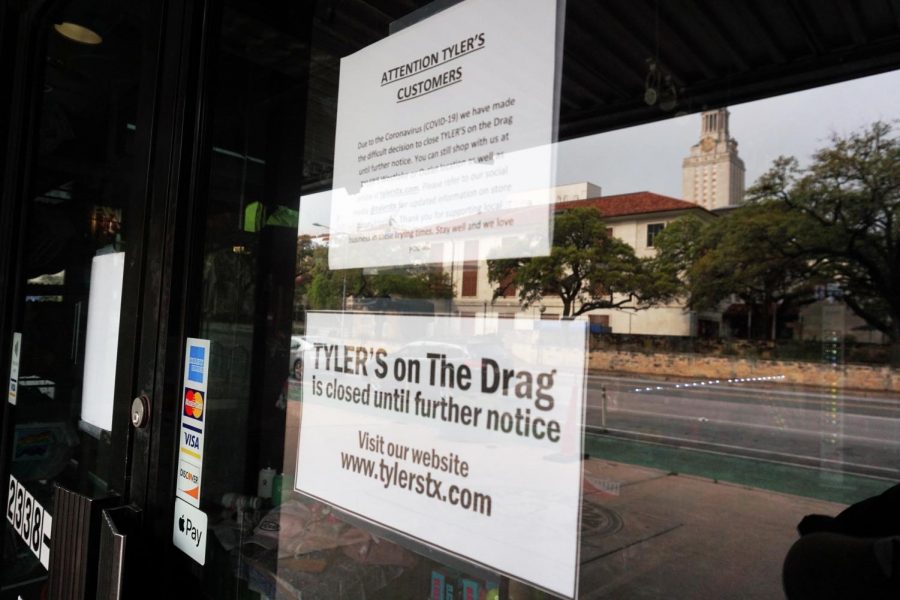
With a vacant UT campus reflected on its storefront windows, the management at Tyler’s on the Drag explains its indefinitely closure to an audience of no one on Sunday afternoon. Photo by Elisha Scott.
While many of the college students were critical of their peers for not heeding the pleas to practice social distancing, they also recognize that practicing social distancing is not just physically straining, but also mentally, as quarantining requires staying at home all day and missing out on anticipated events.
I do think what we are doing is right, but it will only work if everyone self-isolates to keep others safe.
— Loyola Marymount University sophomore Kennedy Schuelke
“I think the situation is just horrible,” Hocker said. “No one benefits from this. It’s so upsetting from every angle; however, we have to keep on pushing forward. I just want to keep everyone safe. Personally I am just trying to do my best to carry on my everyday life but from home. … Of course it sucks ending freshman year early, and it sucks not to have spring break and that’s a lot to handle emotionally but, like I said, we just have to keep pushing through.”
While Hocker left New York to come home to Austin, Murphy left Austin to come home to New York.
“I’m quarantined with my family an hour outside of New York City, which is an interesting place to be because New York now has the most cases and is sort of the epicenter of the crisis in the U.S.,” Murphy said. “I’m thankful to be safe and to have a break from schoolwork since it’s been really hard to focus on anything other than staying safe and keeping up with the news.”
Varying opinions on the U.S. response to COVID-19
And the college students have varying opinions about what they hear in the news about the crisis and how it’s being handled locally by their schools and cities, and nationally by the U.S. government. Hocker applauds the closing of schools and emphasizes its necessity, especially in the most populous city in the United States, New York City, where she attends college.
“I think schools are doing the best they can and moving online is truly the only reasonable option to keep everyone safe,” Hocker said. “The sooner we all can get into a safe space and practice social distancing, the sooner that curve drops and all of this slows. I’m glad most universities are choosing online options and sending students home, especially in New York where cases have quadrupled even since I’ve left.”
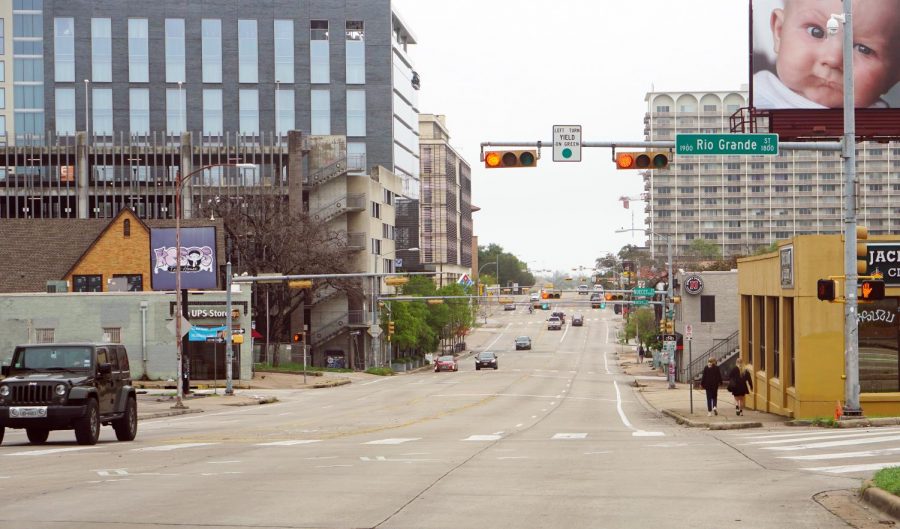
The traffic on Martin Luther King Jr. Boulevard on the south edge of campus was noticeably light for a Sunday afternoon at 3 p.m. Photo by Henry Winter.
The college students we spoke to were much more critical of the national response. Like Hocker, Hynes applauds her school for their fast response and action to the rapidly growing issue, as well as the city of Austin. But, she feels differently about how the national government is dealing with it.
“I think that UT and the Austin local government is doing fairly well in the way they’re handling the issue, given that they’ve been quick to take aggressive measures,” she said. “But the federal government is doing an absolutely horrible job. The fact that they were so slow to act on preparing for this, the lack of testing for the virus, the lack of healthcare infrastructure, everything points to this being far worse in the U.S than it has to be. It’s really disheartening to see a crisis this big handled so poorly.”
Beck believes there have been some discrepancies with the support given to those struggling with such a catastrophic change, both at her school and on a national level.
The impact that this outbreak is having on our global economic and healthcare systems is terrifying, and I truly hope that people start to realize that their lack of responsible short-term actions could have a detrimental impact on our society in the long-run.
— University of Texas senior Hannah Ilan
“There are definitely things Pomona could have done differently to better support students in this transition,” Beck said. “And I think the same thing goes for those working at the national and global level. Nothing of this magnitude has really happened in recent history, so I think there are many unknowns on how best to deal with this situation. Regardless, I think swift action is necessary.”
Coplin, too, feels strongly about the lack of a quality response by the federal government, and even called out the president for his agenda and actions, or lack thereof, against COVID-19.
“Nationally, I do not think it is being handled well,” she said. “Just days ago, our president called the virus a hoax and is still using racism to distract from the lack of access in testing for the virus and lack of resources at hospitals. People are not taking this seriously, you can still see people going on spring break trips and, up until a few days ago, on Sixth Street.”
Despite the mix of feelings and opinions on every factor of COVID-19, from how it’s being handled, to its impact on graduation, to online classes, they all seem to agree that the most difficult part of being a college student during this pandemic is the amount of unknown. And while everyone is unsure of the future, they already were, which makes this all the much worse.
“I think that the hardest part about this for a college student has been the amount of uncertainty,” Doran said. “We were uncertain about how we would continue taking classes. We were unsure about if the university would close. We are unsure about how we will take tests. We are unsure if we will be refunded anything since we don’t have access to things our tuition goes towards. We were unsure if we would be able to stay in our housing. And now I’m unsure how living at home again will be.”
— with reporting by Janssen Transier and Ellen Fox




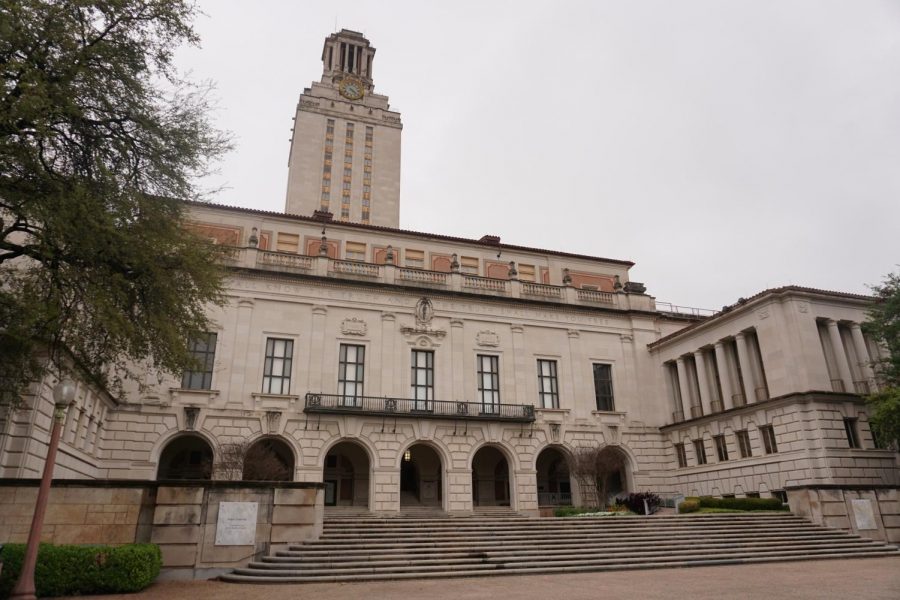
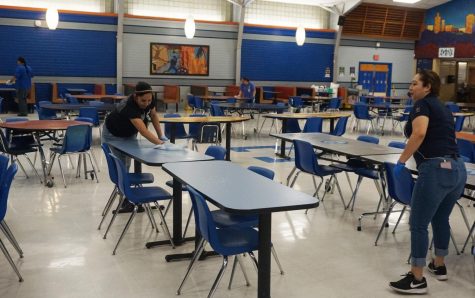
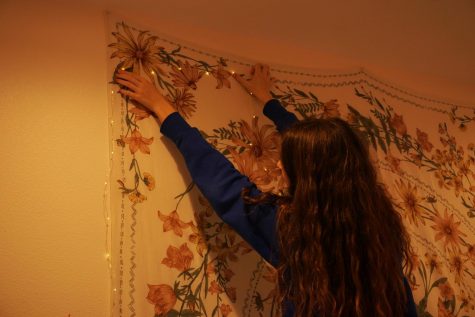

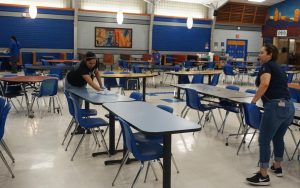
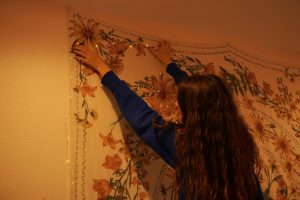


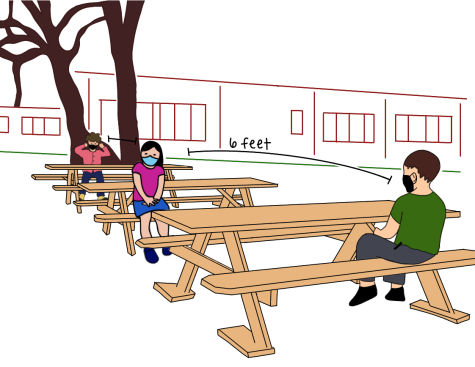
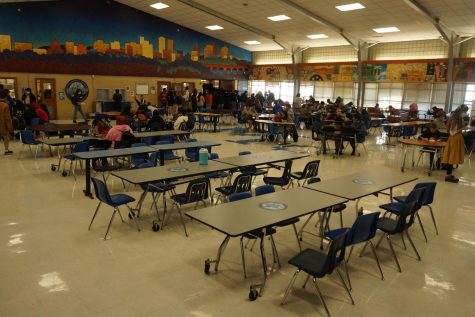
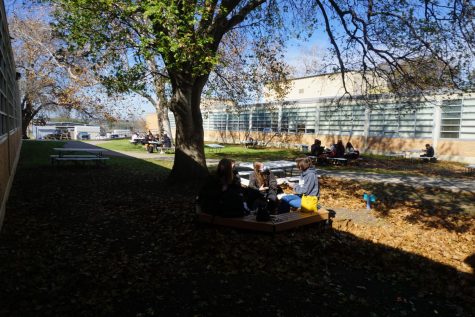
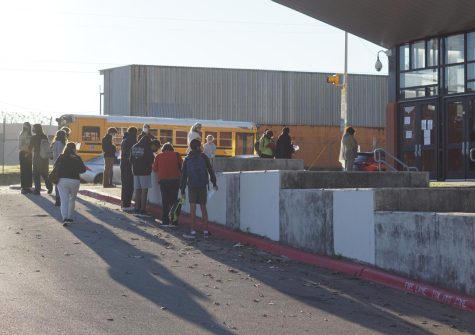
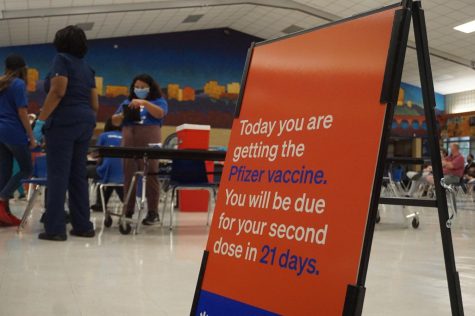
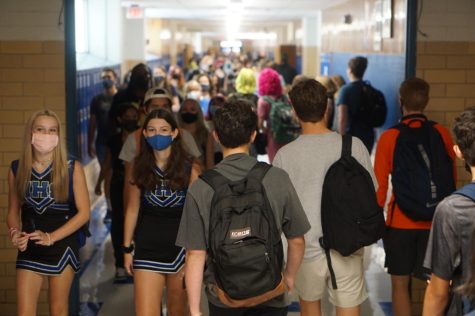
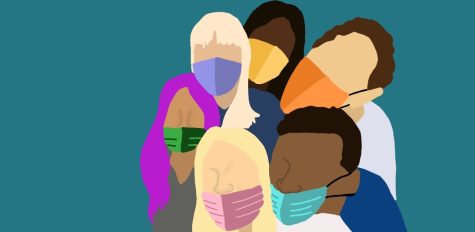

![A crowded scene from Austin City Limits in 2019. This years ACL will most likely look different. Senior Lila Plummer is relieved that mask and vaccine mandates are in place. I got [the tickets] before, but I had the idea that it wasn’t 100% that I would be able to go, especially with the Delta cases being so bad right when I bought them,” Plummer said. “But now with the precautions and cases seeming to get a little bit better, I do feel more comfortable and happy about that, because I worried I was gonna have to sell them.”](https://macshieldonline.com/wp-content/uploads/2021/10/acl-475x390.jpg)
